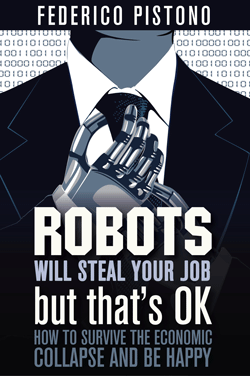Jun 1, 2013
Longevity’s Bottleneck May Be Funding, But Funding’s Bottleneck is Advocacy & Activism
Posted by Franco Cortese in categories: biological, biotech/medical, human trajectories, life extension, policy

The following article was originally published by Immortal Life
When asked what the biggest bottleneck for Radical or Indefinite Longevity is, most thinkers say funding. Some say the biggest bottleneck is breakthroughs and others say it’s our way of approaching the problem (i.e. that we’re seeking healthy life extension whereas we should be seeking more comprehensive methods of indefinite life-extension), but the majority seem to feel that what is really needed is adequate funding to plug away at developing and experimentally-verifying the various, sometimes mutually-exclusive technologies and methodologies that have already been proposed. I claim that Radical Longevity’s biggest bottleneck is not funding, but advocacy.
This is because the final objective of increased funding for Radical Longevity and Life Extension research can be more effectively and efficiently achieved through public advocacy for Radical Life Extension than it can by direct funding or direct research, per unit of time or effort. Research and development obviously still need to be done, but an increase in researchers needs an increase in funding, and an increase in funding needs an increase in the public perception of RLE’s feasibility and desirability.
There is no definitive timespan that it will take to achieve indefinitely-extended life. How long it takes to achieve Radical Longevity is determined by how hard we work at it and how much effort we put into it. More effort means that it will be achieved sooner. And by and large, an increase in effort can be best achieved by an increase in funding, and an increase in funding can be best achieved by an increase in public advocacy. You will likely accelerate the development of Indefinitely-Extended Life, per unit of time or effort, by advocating the desirability, ethicacy and technical feasibility of longer life than you will by doing direct research, or by working towards the objective of directly contributing funds to RLE projects and research initiatives. (more…)


















